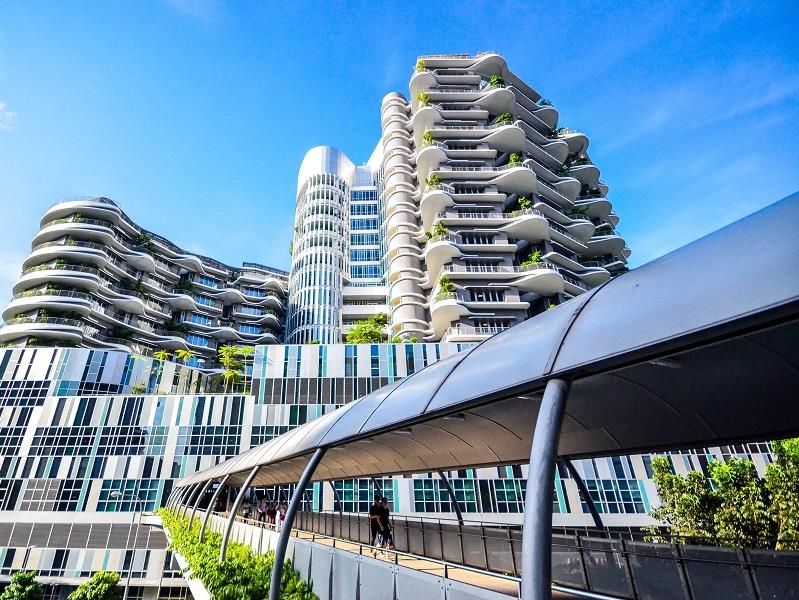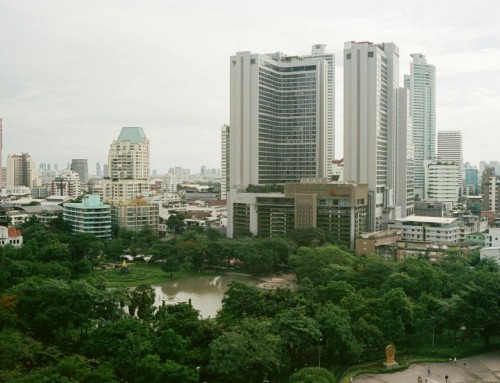When it comes to purchasing a residential property in Singapore, there are broadly two main categories. Private Property or Housing Development Board (HDB) Flats. HDB flats are a form of subsidised housing which is only available to Singaporeans and Singapore Permanent Residents and these properties come with certain restrictions. For this discussion, we will be focusing on Private Property transactions.
The first thing that a buyer should do before starting to hunt for a private property would be to get an in-principle approval from a bank. Usually, the local banks, DBS, UOB and OCBC, provide the most competitive rates. However, it would be wise to look at other foreign banks to compare their loan packages on offer. The banker would require a list of documents for him to accurately access your financial situation. These documents would most likely be your income statements and whatever outstanding debt which you are currently servicing. An in-principle approval would most likely be in the form of an email from a particular banker stating the amount of loan his bank would grant to you.
Next would be the house hunting process. There are many online portals out there. It would be good to note that in Singapore, Propertyguru is the leading portal and listing properties on such online portals is something that almost all property agents in Singapore do. The listings on the classifieds in the local papers are not comprehensive. Thus most property agents and property buyers choose to use online portals for their property advertisements and property search respectively.
Some property buyers choose to view properties with as many property agents as possible. I would cautiously advise against that. Buyers should call up a few listings and after viewing a few properties and finding them unsuitable, they can approach an agent to help them look for a property. It is common market practice for property buyers to not have to pay buyers commission. The agent which you tasked to find a property for you will either be paid commission by the seller if you choose to purchase a property which is listed by him, or he will share the commission received by the seller’s agent if you purchase a property that is listed by another agent. Thus a sincere buyer should look for a property agent which he is most comfortable with and work with him to find you your suitable house. If you explicitly tell him that you will buy a property through him, he will be incentivised to look for a property for you.
There will come a time when you would have found a suitable property and would want to make an offer on that particular property. You would then have to get your agent to prepare a Letter of Offer, clearly stating your offer and issue a cheque of 1% of your offer price to the seller. You must see proof of ownership of the property and the name or names on your cheque should tally with the proof of ownership. You can find this proof either through an Ownership Title Information search with the Singapore Land Authority (SLA) through their portal www.inlis.gov.sg or a copy of the latest property tax showing the ownership of the property. If it is a new development, i.e. you are purchasing from a developer, you can find the project account on the Urban Redevelopment Authority (URA) website. You should make your cheque out to that account. All these checks are inexpensive and can be done online (The search on the SLA website costs $5.25). You should insist that they are done. I personally trust the Ownership Title Information from SLA the most. Your Letter of Offer should also state the terms of the option you would like to receive from the seller. It should state the option period which you would like (usually 14 days) and the time taken to complete the transaction (usually 8 weeks). The property should be sold either with tenancy or vacant possession and this should be indicated in your Letter of Offer. Your offer should also state the validity of your offer. There is no fixed timeframe to be set but usually an offer lasts from anywhere between 3 to 7 days. Your agent would then deliver the option to the seller or the seller’s agent.
Your offer would either be accepted, rejected or they would indicate that they would like to negotiate terms. The negotiation is usually due to the price but there can be differences over the time period to completion or a wide array of factors. Once all terms are agreed upon, the seller would issue an option to you. On the option would clearly state your name, the property address, selling price, the option period, the manner which you can exercise the option, the terms of the option like whether the property is to be sold vacant or with tenancy and the completion date. The seller cannot sell another option to another buyer so long as your option is valid. He should not be conducting any other viewing sessions of his property as well. On the option, it would state the manner in which you can exercise the option. Usually, it would be to deliver a cheque of 4% made in favour of the seller’s solicitors and delivered to the solicitor’s address by a certain time and date.
One of the key things to take note would be that once the option is written and handed to the lawyers, changing the terms of the option would require both the seller and buyer to agree to the changes. Usually, the party that would like to change a certain clause would make a written request to the other party. Common changes to the terms in the option include, and are not limited to, a change in the completion date and the inventory list.
Once you have exercised the option, you will need to fork out the stamp duties for the property within 14 days. For a full breakdown of the stamp duties payable, please refer to this article. Your lawyer would also lodge a caveat on the property. A caveat is a notice of interest on a property. This is to let others know that you have an interest in this particular property. This is to prevent a particular property from being sold multiple times. This caveat would show up on the Ownership Title Information from SLA. It would be good to take note that for calculation of ownership for matters like Seller’s Stamp Duties, the starting date would be the exercise date.
From this moment on, you would be waiting for the completion. Your bank would send a valuer to the property to do a formal valuation on the property sometime after you exercised the option. Your bank loan and remaining payments would be called for by your lawyer about two weeks before completion. This period does vary between law firms. Just before the completion date, you should pay a visit to the property to do a final inspection. This is to ensure that the owners have vacated the premise if it is sold with vacant possession and the fixtures (items that are to be left behind) are in place. On the completion date, if all is well, your lawyers would inform you when it is time to collect the keys to your new property!
I do hope that this article serves as a good guide to what usually happens in a private property transaction.
Yours Sincerely,
Daryl Lum
www.daryllum.com
p.s. The author is a practising CEA licensed real estate agent at the point of writing. The main intention of the article is to serve as an educational tool to buyers going through a private property transaction for the first time. The article is not comprehensive as there are many permutations to a private property transaction.






